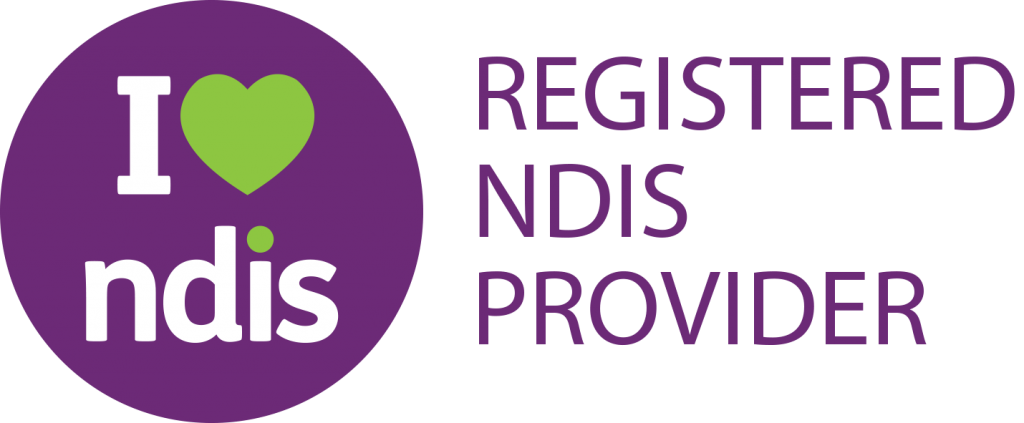Navigating the Future of NDIS: Key Trends Shaping Disability Support
The National Disability Insurance Scheme (NDIS) continues transforming disability support across Australia, with remarkable shifts toward person-centered care, technological advancement, and workforce specialisation. These trends are reshaping how NDIS participants access support services, creating opportunities for enhanced independence and improved quality of life.
The Shift to Person-Centered and Empowerment-Focused Care
The disability support landscape is experiencing unprecedented transformation toward person-centered approaches. This evolution places NDIS participants at the center of decision-making, moving away from traditional service models.
What it means for participants:

Greater Choice & Control
NDIS participants now exercise increased autonomy in selecting support workers, services, and care approaches. This shift empowers individuals to make decisions aligned with their personal goals and preferences, ensuring support plans reflect unique needs rather than standardised offerings.
Goal-Oriented Support
Modern disability support focuses on achieving personal goals rather than maintaining status quo care. Support workers collaborate with participants to develop targeted strategies that promote independence, community participation, and meaningful outcomes.
Empowerment over Assistance
The emphasis has shifted from providing assistance to fostering empowerment. Support workers now function as facilitators, helping NDIS participants develop skills and confidence to navigate daily challenges in an independent manner.
How Nurse Aid Australia delivers on this trend
Nurse Aid Australia implements person-centered care through individualised support plans that prioritise participant choice and control. Our support workers undergo continuous professional development to deliver empowerment-focused care, ensuring each participant receives tailored support aligned with their goals and aspirations.
The Rise of Technology and Its Impact on Independence
Digital solutions, including telehealth services, online support platforms, and mobile applications tailored for individuals with disabilities are revolutionising disability support delivery. Technology integration creates new possibilities for enhanced independence and accessibility.
Specific Innovations and their benefits
Assistive Technology
Advanced assistive technologies now include smart home systems, voice-activated devices, and mobility aids equipped with AI capabilities. These innovations enable NDIS participants to perform daily living tasks with greater independence and reduced reliance on human support.
Wearable Health Monitors
Wearable devices monitor vital signs, activity levels, and health metrics, providing real-time insights to support workers and healthcare professionals. This technology enables proactive intervention and personalised care adjustments.
Telehealth & Digital Platforms
Telehealth services have gained momentum, especially during the COVID-19 pandemic, expanding access to healthcare and support services for remote and regional participants. Digital platforms facilitate continuous communication between participants and support teams.
How Nurse Aid Australia integrates technology
Nurse Aid Australia leverages technological advancements to enhance service delivery through digital care coordination platforms, remote monitoring capabilities, and assistive technology integration. Our support workers are trained to utilise technology effectively while maintaining human-centered care approaches.
Growing Importance of a Specialized and Professional Workforce
The disability support workforce is experiencing significant evolution toward specialisation and professional development. The NDIS continues to refine its pricing structure to attract and retain skilled professionals in the field, recognising the importance of qualified support workers.
What this means for the workforce and participants
Specialized Expertise
Support workers increasingly develop expertise in specific disability types, mental health support, and complex care needs. This specialisation ensures participants receive targeted interventions from knowledgeable professionals.
Continuous Professional Development
Workforce development emphasises ongoing training in evidence-based practices, cultural competency, and technological literacy. This commitment to professional growth translates to improved outcomes for NDIS participants.
How Nurse Aid Australia is leading this trend
Nurse Aid Australia invests in comprehensive workforce development through specialised training programs, mentorship opportunities, and career advancement pathways. Our team includes qualified professionals with expertise across diverse disability support areas, ensuring participants receive high-quality, specialised care.
Navigating NDIS Reforms and Financial Sustainability
From 3 October 2024, there are some changes to how the NDIS works to bring greater clarity and flexibility to participants. These reforms aim to improve scheme sustainability while maintaining participant outcomes.
What this means for participants
Recent reforms introduce clearer guidelines for support categories and funding allocations. All new plans created after 3 October 2024 will be 12 months, with longer-term planning anticipated in the future.
How Nurse Aid Australia helps
Nurse Aid Australia supports participants through reform transitions by providing clear communication about changes, assisting with plan reviews, and ensuring continuity of services during adjustment periods.
Future Trends in NDIS Support Services
Technology-Integrated Care
Artificial intelligence and machine learning applications will increasingly inform support planning, enabling predictive analytics for personalised interventions and improved resource allocation.
Community-Centred Support Models
Support delivery is shifting toward community-based models that promote social inclusion, community participation, and peer support networks. This approach recognises the importance of social connections in achieving quality of life outcomes.
Environmental and Sensory Innovations
Future support services will incorporate environmental modifications and sensory-friendly approaches to create inclusive spaces that accommodate diverse sensory needs and preferences.
The Rise of Specialized & Holistic Support
What This Means for Participants:
Specialized Expertise
Participants benefit from support workers with advanced knowledge in specific areas including mental health support, complex medical needs, and behavioural interventions.
Integrated Care
Holistic approaches coordinate multiple service providers, creating seamless support networks that address physical, emotional, and social needs comprehensively.
Nurse Aid Australia’s Commitment
Nurse Aid Australia maintains a team of diverse specialists including registered nurses, allied health professionals, and experienced support workers. Our integrated care model ensures participants receive coordinated support across all life domains.
Conclusion: Embracing a Brighter Future Together
The future of NDIS represents tremendous opportunities for enhanced participant outcomes, technological innovation, and workforce excellence. These trends create pathways for greater independence, community participation, and improved quality of life for people with disabilities across Australia.
Nurse Aid Australia remains committed to embracing these transformative trends while maintaining our focus on person-centered, high-quality support delivery. As the disability support landscape continues evolving, we ensure our participants benefit from cutting-edge approaches, specialised expertise, and compassionate care that promotes empowerment and independence.
Ready to Take the Next Step?
At Nurse AID Australia, we’re here to support you in turning your NDIS goals into real-world outcomes. Whether you’re looking to join community activities, improve your social confidence, or access tailored support services—we’re just a click away.
Have questions? Contact our friendly team to discuss how we can help you or your loved ones thrive through the NDIS.
FAQs
What are the Key NDIS Reforms to Watch?
Key reforms include changes to how the NDIS works to bring greater clarity and flexibility to participants, revised pricing structures, and enhanced quality and safeguarding frameworks. A new framework for all people with disability called the Disability Supports Quality and Safeguarding Framework is being developed to improve service standards.
What are the disability support worker responsibilities in a Changing Landscape?
Support worker responsibilities are expanding to include technological literacy, specialised care expertise, and person-centered planning capabilities. Workers must adapt to digital platforms, evidence-based practices, and empowerment-focused care approaches while maintaining professional standards and continuous development.
What can be Evolving support Services?
Support services are evolving toward technology-integrated delivery models, community-based approaches, and specialised interventions. Future services will incorporate AI-powered planning tools, remote monitoring capabilities, and environmental innovations that promote independence and community participation for NDIS participants.




